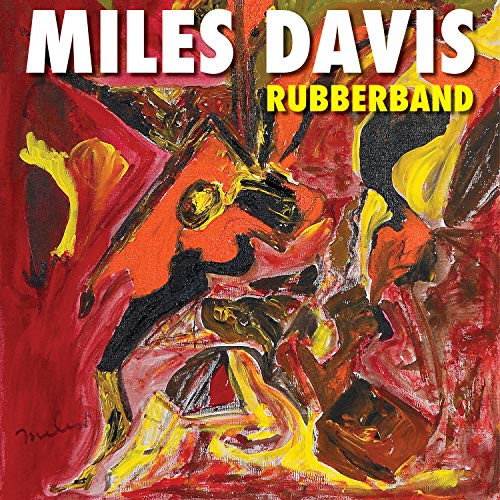“Awase”, a term from martial arts, means “moving together” in the sense of matching energies, a fitting metaphor for the dynamic precision, tessellated grooves and balletic minimalism of Nik Bärtsch’s Ronin. Six years have passed since the last release from the Swiss group. In the interim, trimmed from quintet to quartet size and with new bassist Thomy Jordi fully integrated, Ronin has become a subtly different band. Bärtsch speaks of a new-found freedom and flexibility in the approach to the material, with “greater transparency, more interaction, more joy in every performance”. The freedom here extends to revisiting early Bärtsch modules alongside new compositions including, for the first time on a Ronin record, a piece by reedman Sha. Awase was recorded at Studios La Buissonne in the south of France in October 2017 and produced by Manfred Eicher.
FEATURED ARTISTS
TRACKLIST
A1 Modul 60 5:08
A2 Modul 58 18:19
B1 A 8:23
B2 Modul 36 13:37
C1 Modul 34 8:51
C2 Modul 59 11:01
BACKGROUND
Six years have passed since Live, the last release from Nik Bärtsch’s Ronin, the long gap bridged in 2015 with Continuum, an album from Mobile, Bärtsch’s all-acoustic project. “I wanted to give Ronin the peace and space it needed to develop,” says the Swiss composer-pianist. “Not to put it under pressure, and to take all the steps necessary before the next recording.”
Awase, recorded at Studios La Buissonne in the South of France in October 2017 and produced by Manfred Eicher, updates us on the progress of one of the most original bands around, as well as the present-day status of ritual groove music, Bärtsch’s all-purpose term for his self-invented idiom equidistant from jazz and funk and contemporary composition. Almost by definition, rituals can’t be rushed, and Ronin has had some changes to absorb. With bassist Thomy Jordi replacing Björn Meyer in 2011, and percussionist Andi Pupato departing the following year, trimming the line-up from quintet to quartet, Ronin has gradually become a subtly different band. A leaner, more agile animal.
Bärtsch speaks of a new-found freedom and flexibility in the approach to the material, with “greater transparency, more interaction, more joy in every performance”. The freedom here extends to revisiting earlier Bärtsch modules alongside new compositions including, for the first time on a Ronin record, a piece by reedman Sha. “We’ve spent a long time working on the new repertoire, really checking out and fine tuning all the details.”
Awase, a term from Aikido, means “moving together” in the sense of matching energies, a fitting metaphor for the dynamic precision, tessellated grooves and balletic minimalism of Ronin today. In the old band, Bärtsch often chose to present Björn Meyer’s flamboyant 6-string bass as a lead instrument. Thomy Jordi’s 4-string bass guitar tends to be deployed within the fabric of the pieces, creatively fulfilling a more traditional bass function and locking in with Kaspar Rast’s powerful drums. With Bärtsch also scaling back his own solo playing, listeners are encouraged to hear the whole music and its layered, shifting approach to interaction in new ways.
The album opens with an abbreviated version of “Modul 60”, quite unlike the interpretation heard on the Mobile recording. “We’ve always taken the position that the compositions can be played by both groups – Mobile or Ronin – to bring out different aspects of the music. When we did ‘60’ with Mobile, I was hearing it in a very chamber music way and it radiated a sort of bittersweet atmosphere. With Ronin it has a sparseness, an emptiness and a roughness that I really like. In the studio Manfred and I had the idea that it would be nice to play it as a sort of ‘quote’, bringing the story forward from Continuum. So, this new version starts around the middle of the composition…”
“Modul 58” is built upon – in Ronin terms – “a simple pattern cycle, just 5 against 7, and the same motif even, but it created such an interesting form. We usually think that metre, rhythm and the start of a piece all begin on the ‘one’, but in a lot of the tribal music styles we admire there is often not such a clear downbeat. ‘58’ becomes a kind of metric mantra which keeps loading itself up until we get to the more open part. You can hear, almost ironically, the simplicity of the two rhythms but you cannot catch them at the same time. In its direction and its energy this piece still feels new to me, although there is something about it that seems archaic.”
The role of bass clarinettist and alto saxophonist Sha (born Stefan Haslebacher) has been steadily growing inside Ronin, and this is acknowledged by the inclusion of his composition “A”, which forms a contrasting transition on the album between “Modul 58” and “Modul 36”, while also being an effective piece in its own right. Nik Bärtsch: “When Ronin plays it as an organism it attains an enormous power and it shows, I think, that Sha is developing a personal and unique language as a composer.”
“Modul 36” is an old Ronin favourite which introduced the group to ECM listeners back in 2006: “Yes, it was a conscious decision to choose that piece to mark this quartet album also as a kind of new beginning, and to show how things have developed. In terms of structure and clear, fine detail, the compositional aspects – those things remain. But the group feeling is very different and the energy more voodoo-ish, perhaps. And I’m really enjoying playing as part of the band again on ‘36’, rather than soloing.”
Written “back in 2002 or 2003”, “Modul 34” receives its premiere recording here. “Sometimes pieces just have to wait until they are ready, or we are ready. Part of the challenge with ‘34’ was not to allow it to become too busy on the one hand, or too formal on the other.”
The members of Ronin meet every week, as they have done for many years now, to puzzle out the implications of Bärtsch’s pieces in workshops and performances at the Zürich club, Exil. The group is, says Nik, still coming to terms with the demanding final piece here, “Modul 59”. It is one which, he says, points the way to the future. “It begins from basic ideas, in this case to do with triplets, and builds until it becomes a sort of polyrhythmic, polyphonic carpet of sound. We’ve rehearsed and developed it extensively, and it still keeps surprising us.”
Nik Bärtsch’s Ronin are touring widely with the music of Awase in 2018.
3 Reviews Hide Reviews Show Reviews
-
Recommended
Jazz of excellent minimalist quality. Listen to it repeatedly
-
Refreshing innovative music in a world that really needs it.
I'll add my two cents worth in here as well. This is really an interesting album. It has the usual great ECM sound quality and the musicianship is Excellent. This isn't your usual "Jazz" or "New Age" listening experience. I'm not sure how to categorize it except interesting and refreshing. The music is hypnotic and relaxing with a steady meter, but continues to evolve and get more interesting as time moves with each piece. This is clearly not improvised music on the fly, but carefully crafted with each module. The musicianship is spot on with great chops. I highly recommend it as I have most of his other works and he never disappoints. This music is innovative and refreshing in a world that is inundated with unsophisticated musical garbage being produced today.
-
Experiencing the Modul: Further Adventures of Ronin
Nik Bärtsch's ensemble Ronin has an individualistic sound, consistent over many albums, based on minimalistic, staccato rhythmic and scalar patterns called (and numbered) Moduls, related to both modules and modes. Within each Modul there are musical modular forms that are flexible to the developing piece. For this opus, Bärtsch is at the piano, Sha blows bass clarinet and alto saxophone, Thomy Jordi plays bass, and Kaspar Rast handles the drums. Layers of melodic reed phrases, repeated piano notes and chords, ornamental drum work, and sketchy harmonious bass offerings create mystery and suggestions of ancient rituals. The music draws in the listener at psychologically deep tribal and dance-trance states. The music, while maintaining its mathematical-like structure, continually changes in dynamics of intensity, tempo, and instrumental timbre through various fingering, breath, and other techniques. Awase, the title of the album, meaning in Japanese 'coming together,' is a principle in Aikido martial art. The individual musician merges into the flow to shift its power and direction. Thus, despite their similarity, the Moduls remain interesting and mesmerizing through both subtle and distinct alterations. Ronin is a group you experience as well as hear. This album is among their best.








